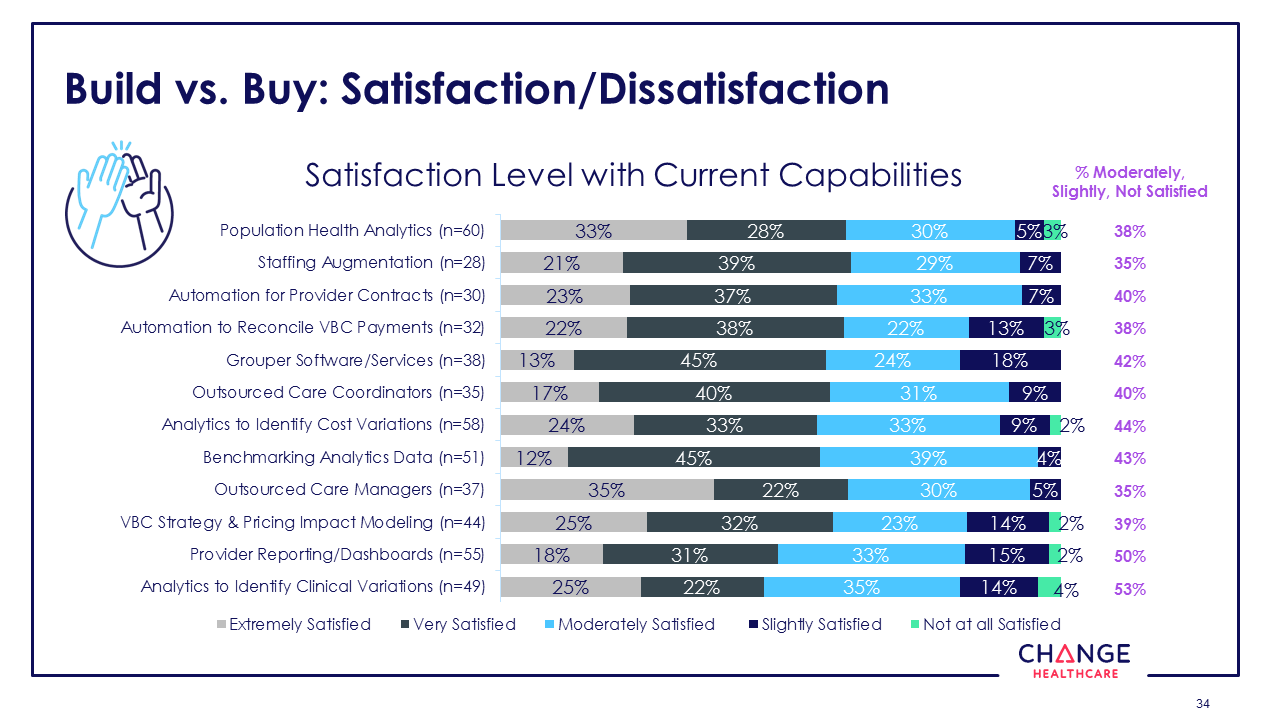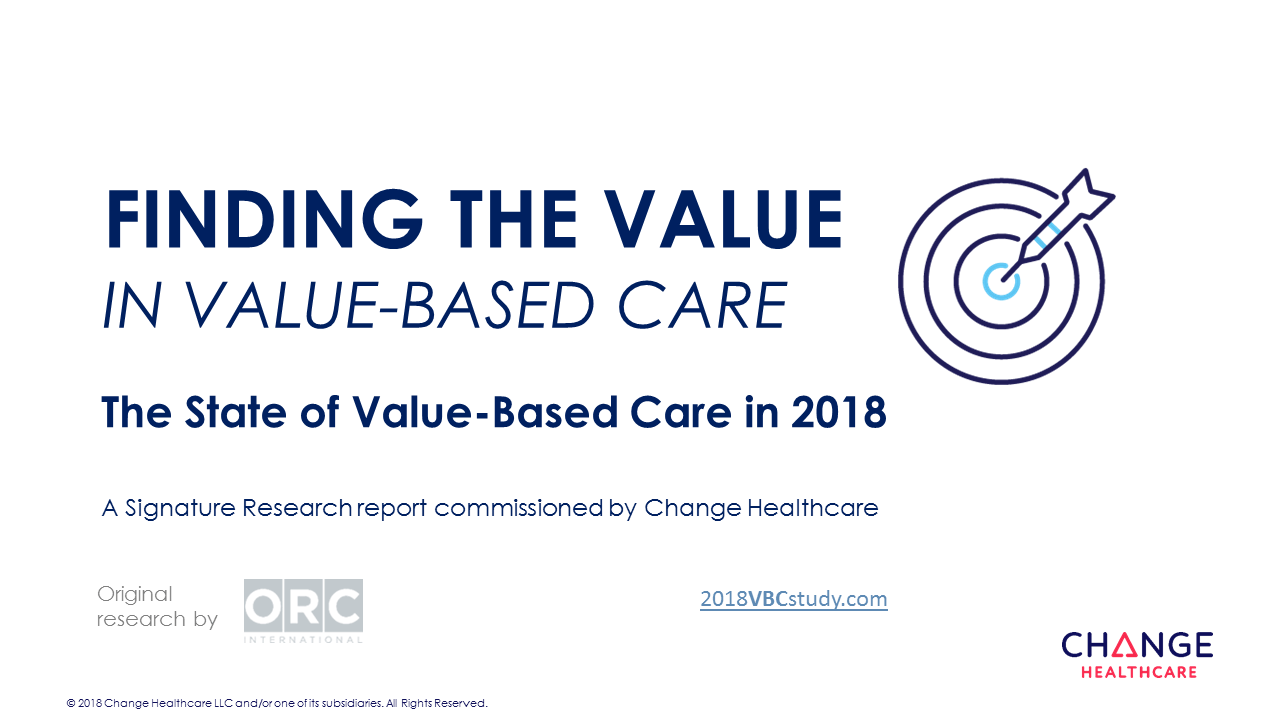
Value-based care is bending the healthcare cost curve, reducing unnecessary medical costs 5.6% on average while improving care quality and patient engagement—effectively starting to achieve the long-sought triple aim. Despite easing or ending of federal mandates, commercial lines of business are investing in value-based innovation, accelerating the decline of pure fee-for-service faster than previously projected levels. Indeed, today nearly two-thirds of payment are now based on value.
These insights and more are revealed in Finding the Value: The State of Value-Based Care in 2018, a new national study of 120 payers conducted by ORC International and commissioned by Change Healthcare. Third in a series, the research follows the company’s 2014 and 2016 studies, which established a baseline for healthcare’s transition to value and made it possible for this new research to look at trends and success metrics, and drill down into operational advancements since the first study was published four years ago.
Finding the Value: The State of Value-Based Reimbursement in 2018 will help healthcare stakeholders see how payers are responding to changes and demands in an uncertain market, what reimbursement models and technology are being used, how they are being operationalized and scaled, what’s working, what’s failing, and where payers expect value-based care to be in the future. Respondents were comprised of senior executives–director level and above–across medical management, finance, technology, network management, analytics, and strategy, who were familiar with value-based care activities at their organization.
“Payers are finding the positive impact of value-based care as they scale these models—particularly episodes of care—and that’s starting to bend the cost curve in a significant way,” said Carolyn Wukitch, senior vice president and general manager, Network and Financial Management, Change Healthcare. “However, the demand to innovate at the pace of change is challenging payers. They lack satisfactory analytics and automation to better engage providers, operationalize their models, and assess effectiveness overall. And that’s why we continue to invest in the technologies and services that will help our customers have the right tools in place to speed innovation and simplify complexity, which will be the deciding factors for success in this new era.”
The research reveals 10 key value-based care trends to follow in 2018 and beyond:
1. Payers report success in reducing unnecessary medical costs as a result of their value-based care strategies. Medical cost savings topped 5.6% on average, with almost a quarter of respondents noting savings in excess of 7.5%.

2. Almost 80% of payers report improvements in care quality, while 64% report improvements in provider relationships and 73% report patient engagement improved—significant headway toward achieving the elusive “triple aim” of healthcare through value-based care initiatives.
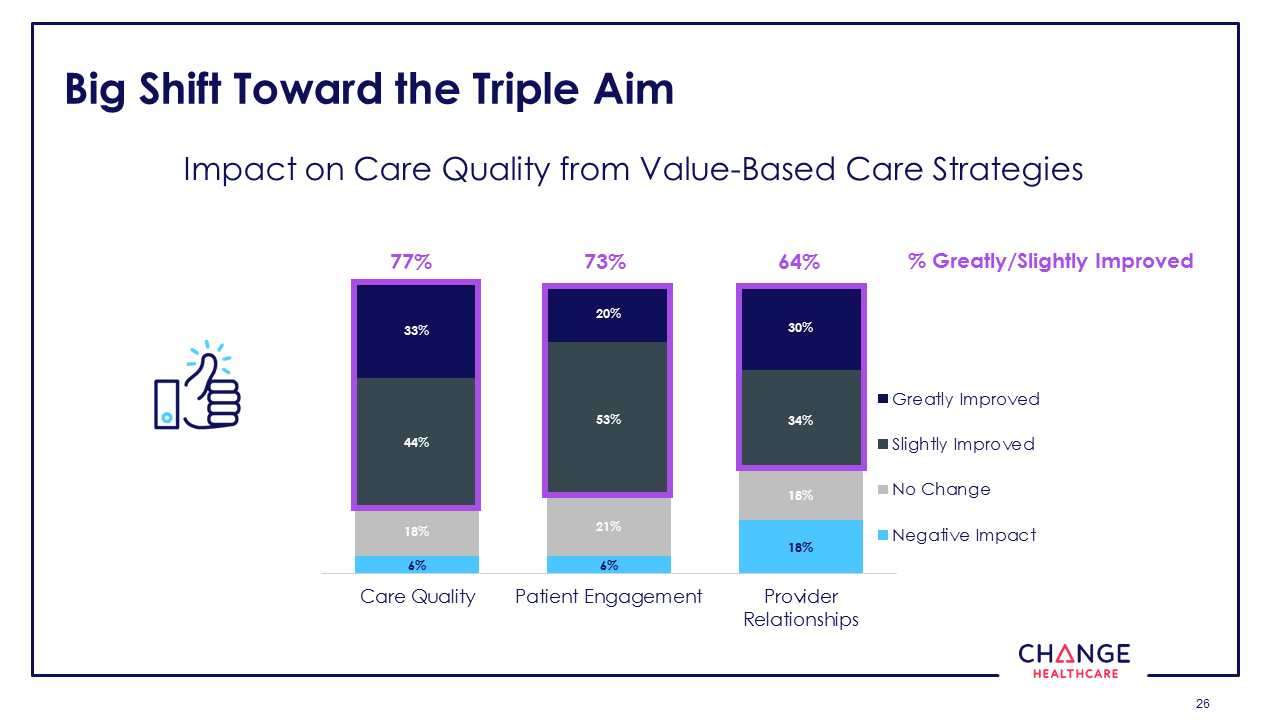
3. For the first time, commercial lines, not government lines of business, are leading adoption, advancement, and innovation of value-based care models and strategies.
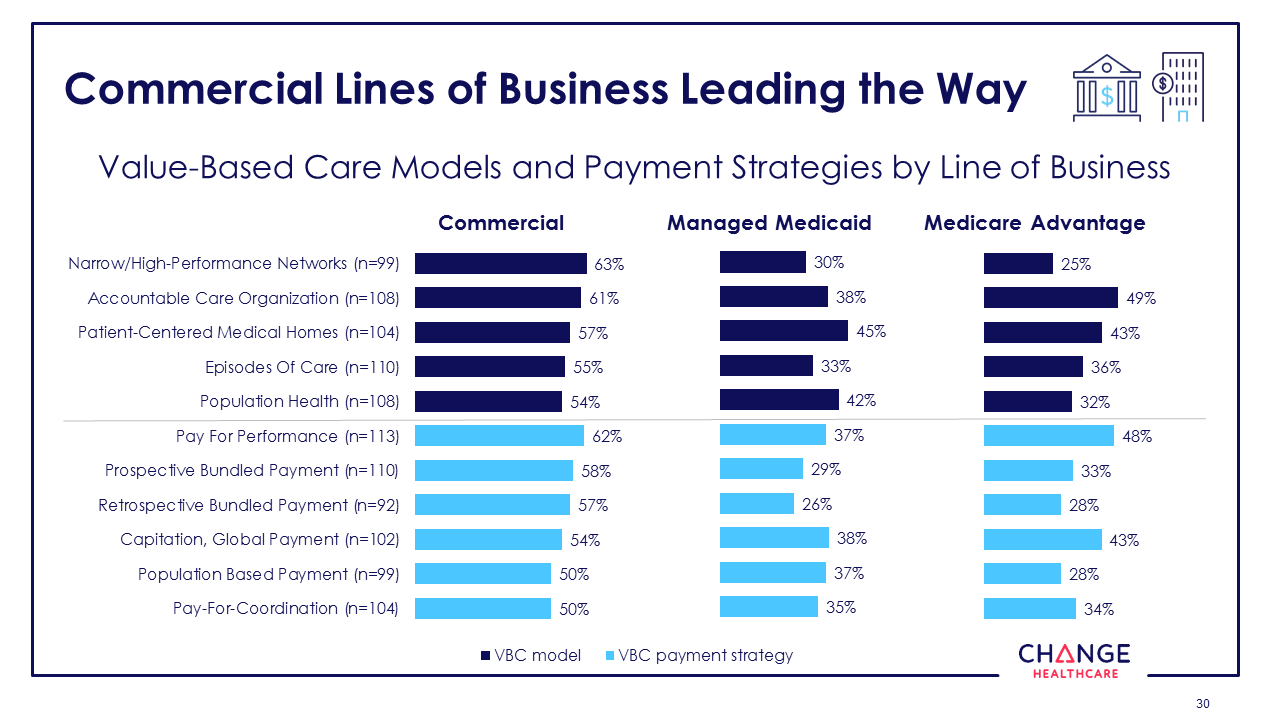
4. Pure fee-for-service is fading faster than predicted in past studies, now accounting for only 37.2% of reimbursement, and projected to dip below 26% by 2021.
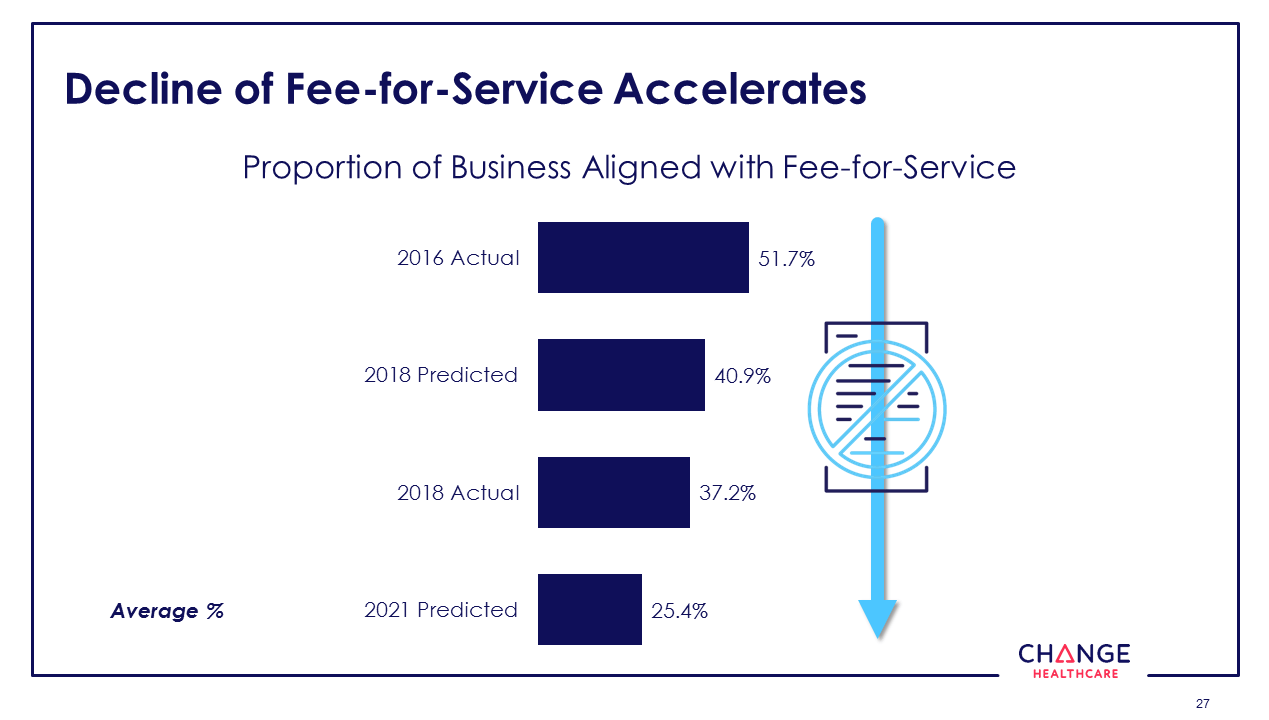
5. Innovation agility remains a problem, with only 21% of payers capable of rolling out a new episode of care program in three to six months. Over a third of payers need up to a year to launch a new program, 21% require up to 18 months, and 13% need up to 24 months or more—more than enough time for conditions to change in a fast-moving healthcare market.
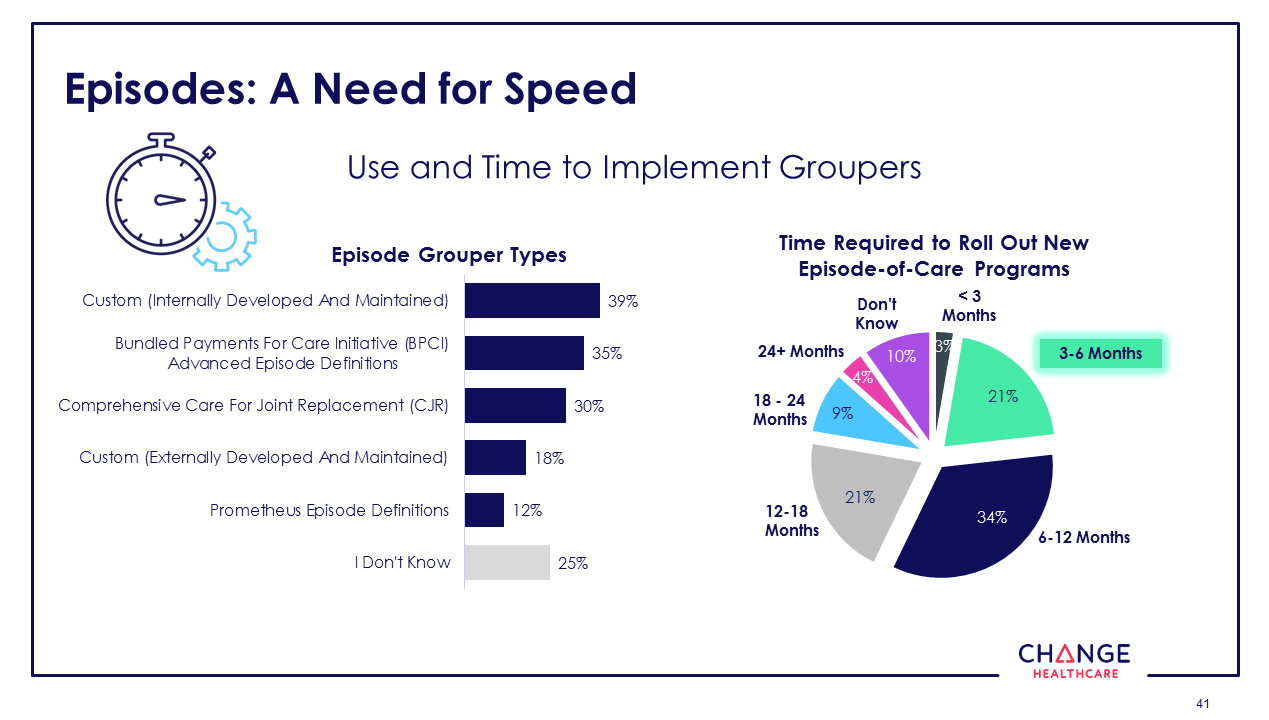
6. Payers are struggling to engage providers in episode-of-care programs, with 43% to 58% reporting it is very or extremely difficult to: generate interest among providers to participate; agree on episode definitions; and gain consensus on budgets, risk/gain sharing, and performance metrics.
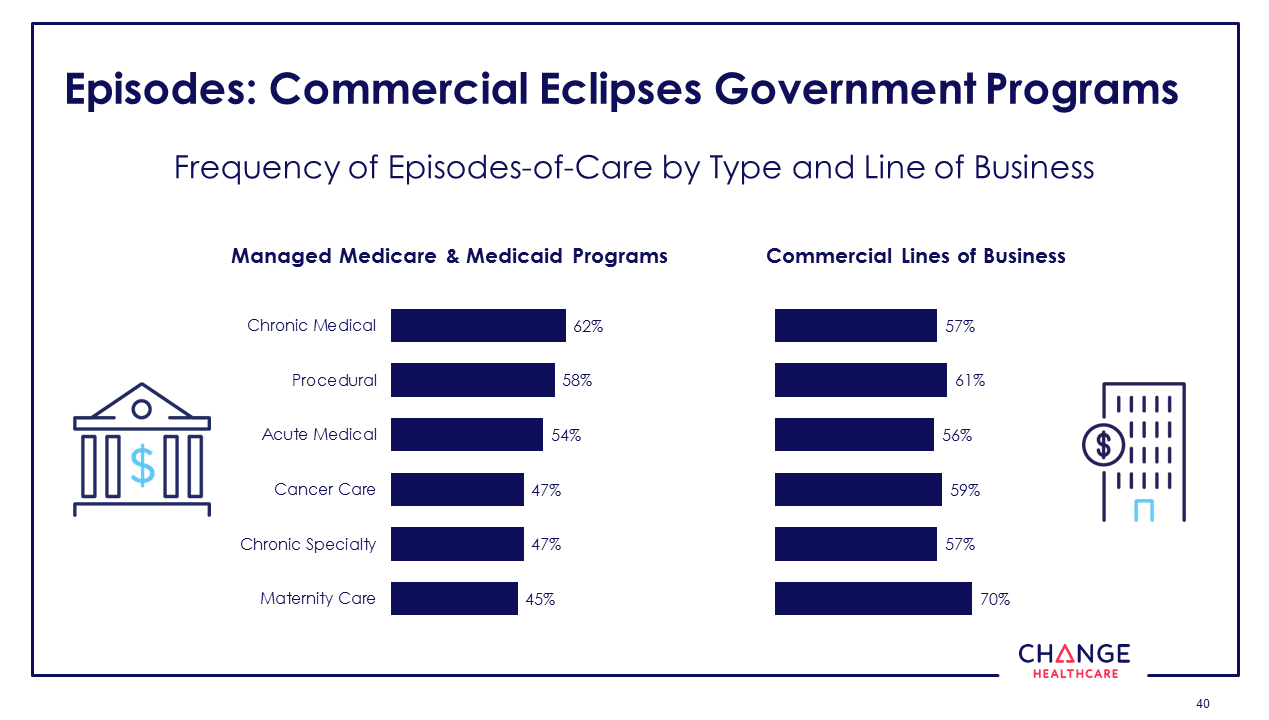
7. Exceptional medical cost savings are motivating 66% of payers to invest in administrative staff to support future growth of episode-of-care programs.
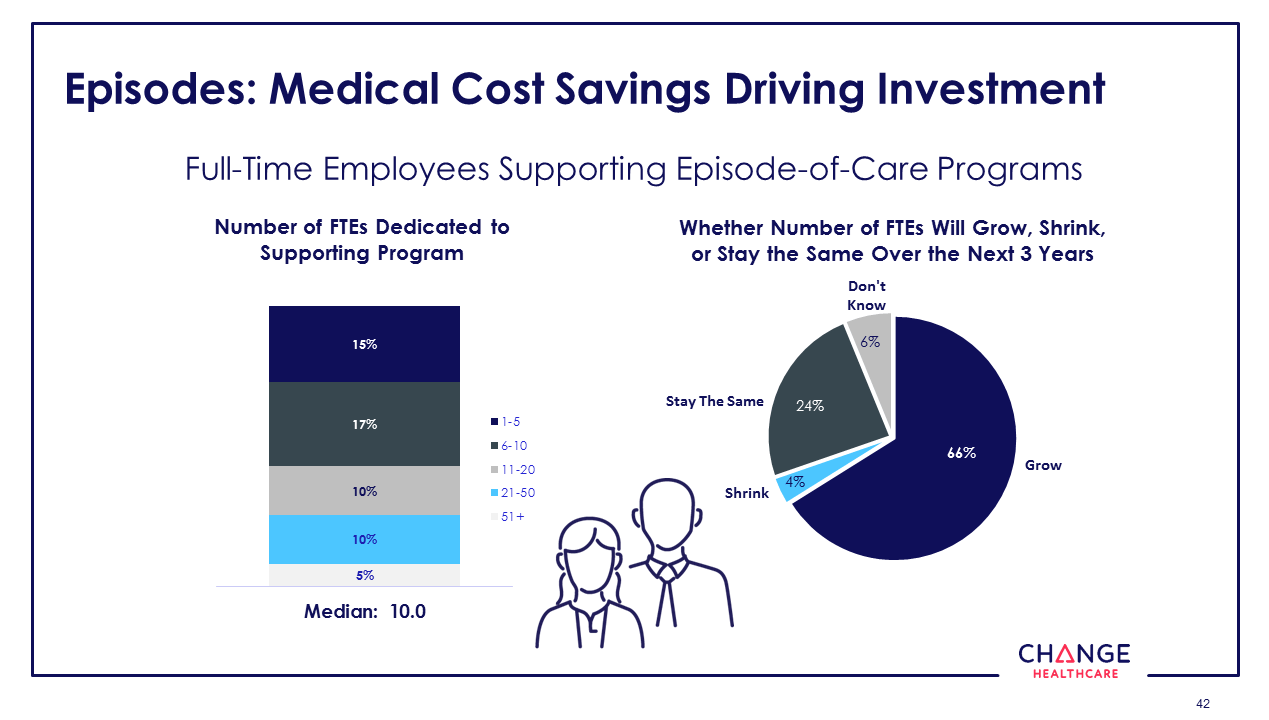
8. A third to half of payers find episode-of-care models very to extremely effective at improving care quality, across all types of episodes.
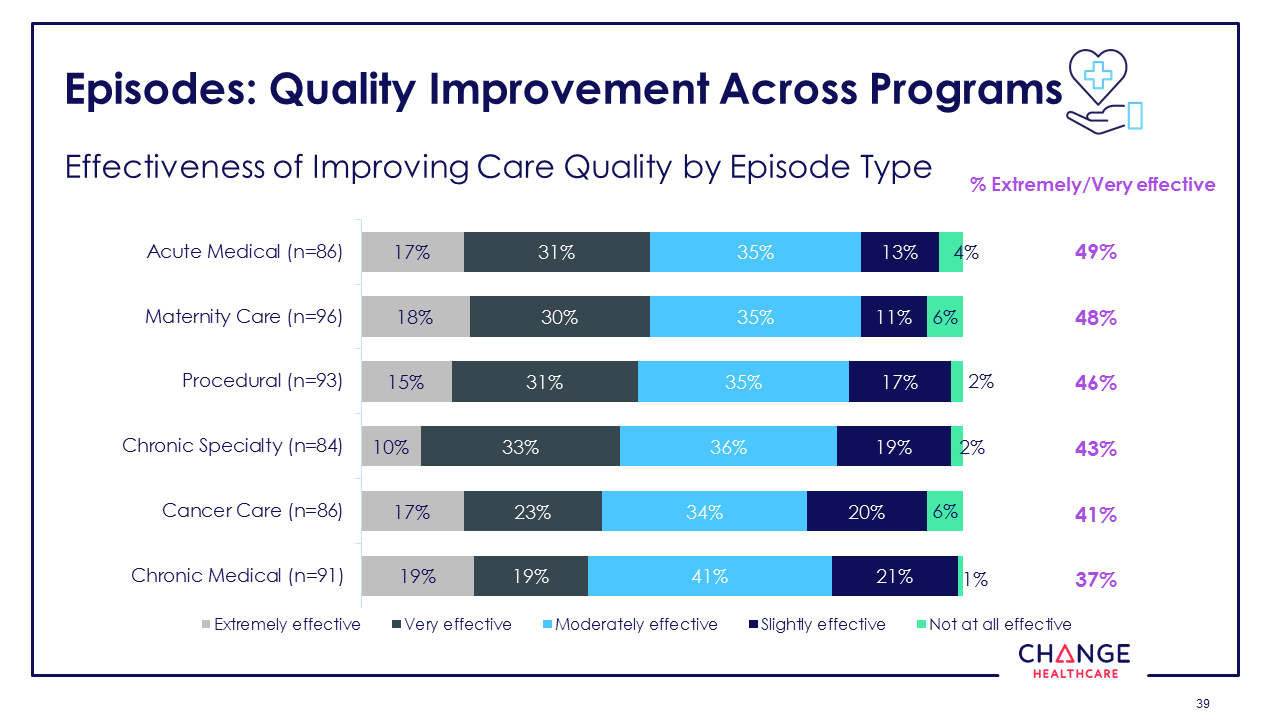
9. Episode models deliver savings from 5% to 5.4% on average, depending on the episode type. Some payers report savings as high as 7.5% or more.
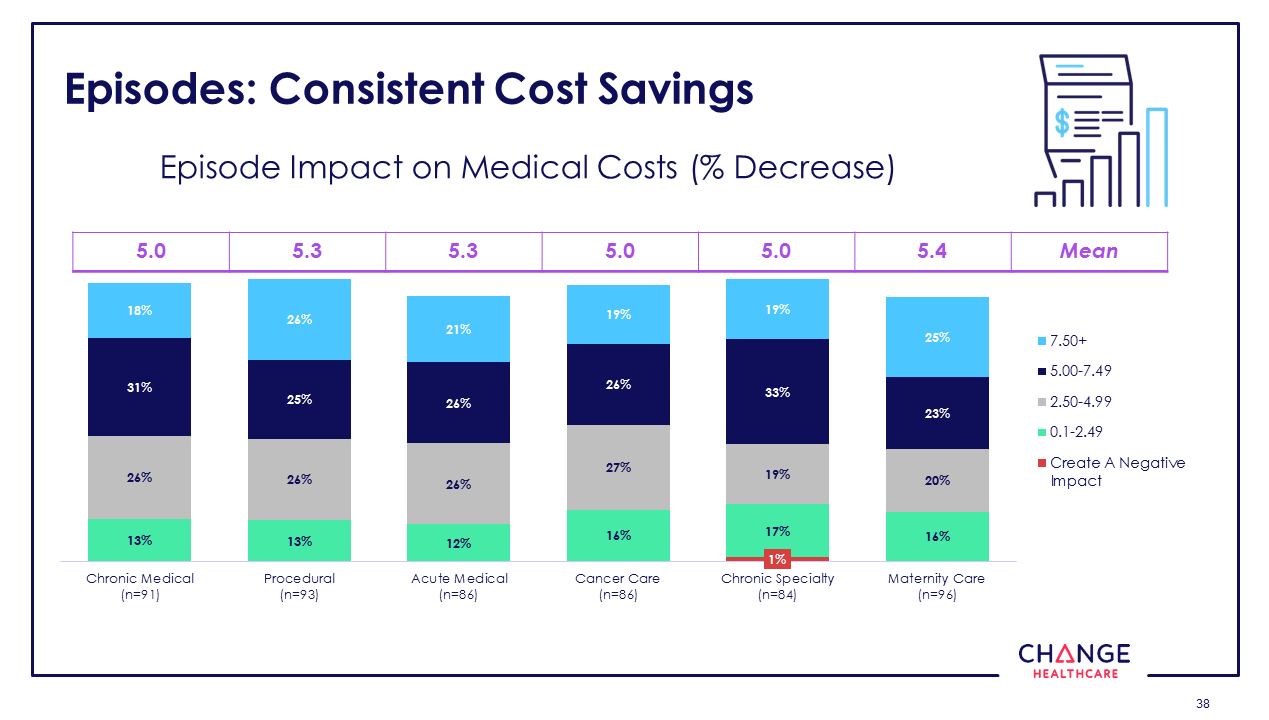
10. Over half of payers are not very satisfied with their current value-based analytics, automation, and reporting capabilities—despite the fact that many of these are designed and developed in house.
